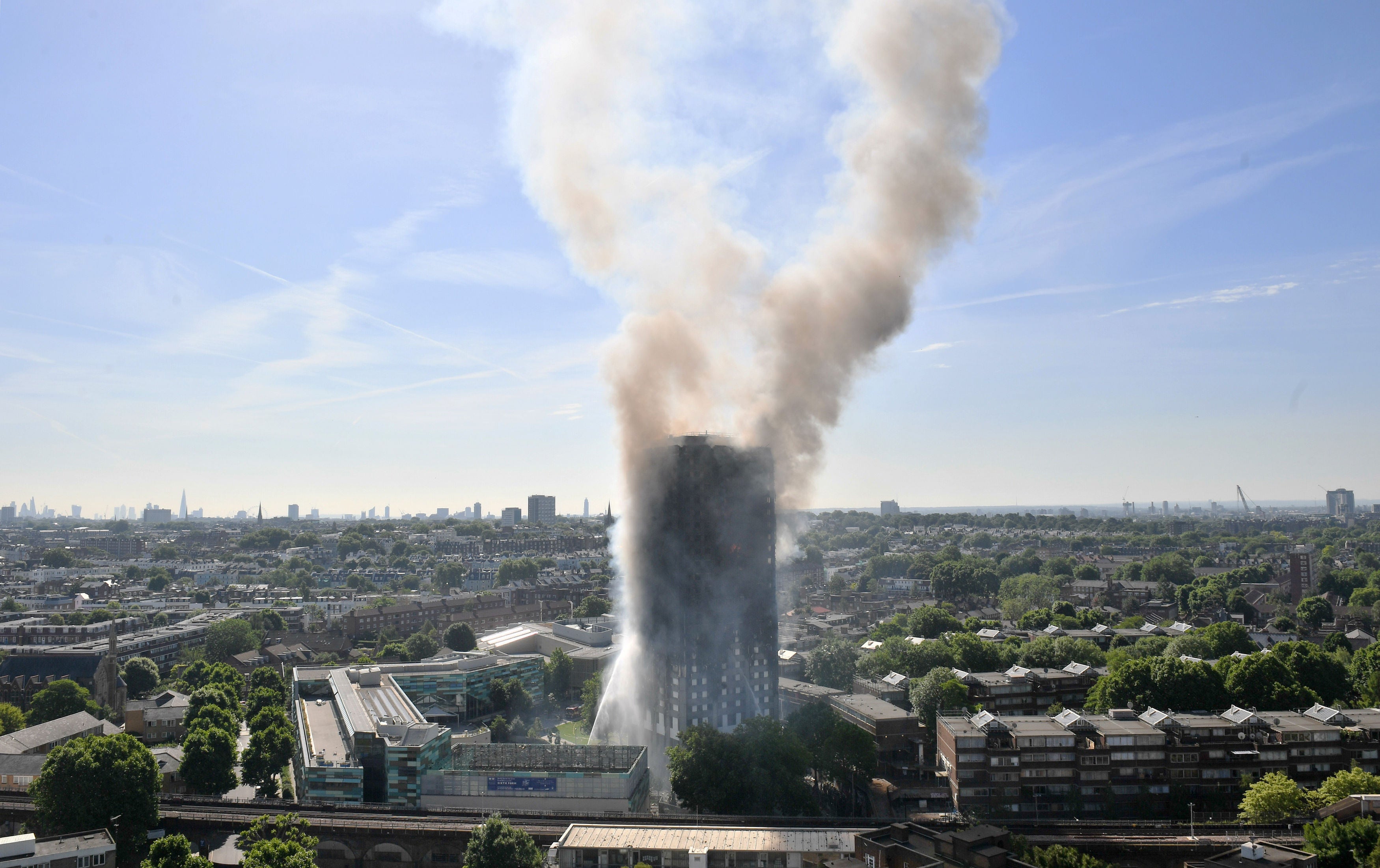Gove to tell property firms to ‘do the right thing’ on cladding
Developers to be asked for £4bn to make housing blocks safe, reports suggest

Michael Gove is set to give property developers an Easter deadline to “do the right thing” in making safe buildings put at risk by cladding or face legal action to force them to do so, according to reports.
The housing secretary is expected to tell MPs in a statement on Monday that he will “expose and pursue” private firms responsible for safety problems caused by cladding, as he sets out measures to remove the material from lowrise blocks.
Monday’s announcement is expected to include a pledge to residents of buildings between 11 and 18 metres high that they will not have to pay for the removal of panels deemed unsafe in the wake of the 2017 Grenfell Tower property.
According to BBC reports, Mr Gove will say that the government instead intends to secure up to £4bn from developers towards the costs.
“Those who profited and continue to profit from the sale of unsafe buildings and construction products must take full responsibility for their actions and pay to put things right,” Mr Gove is expected to say.
But Labour warned that the measures to be announced “appear far less significant than they sound”, with nothing for leaseholders facing huge bills to fix non-cladding defects.
The government has already allocated £5bn to remediating fire safety defects including flammable cladding in hundreds of highrise blocks of more than 18m in height, following the death of 72 people in the Grenfell blaze.
But this left hundreds of thousands of people in buildings under 18m facing huge bills to make their homes safe or pay for expensive fire patrols, with many unable to insure or remortgage their properties.
In November, Mr Gove announced that he was “pausing” plans for a loan scheme proposed by his predecessor Robert Jenrick, under which leaseholders would have had to repay up to £50 a month after work was completed.
He questioned why as “innocent parties” leaseholders should be forced to foot the cost of replacing the cladding.
Loans for these buildings will be replaced by a “limited grant scheme”, according to the letter to Mr Gove from chief secretary to the treasury, Simon Clarke, reported by BBC Newsnight on Friday.
“You may use a high-level ‘threat’ of tax or legal solutions in discussions with developers as a means to obtaining voluntary contributions from them,” the letter said.
Stating that “the taxpayer should not be on the hook for further costs of remediation”, Mr Clarke’s letter said that his approval of the new package of measures which Mr Gove will reportedly announce next week was conditional on the fact that no new Treasury funding will be made available for the work.
Instead, if Mr Gove is unsuccessful in persuading developers to pay for the costs, existing housing budgets should be used as a “backstop” for funding the proposals, Mr Clarke said, warning that, in the event that insufficient funds are raised from developers, “safety should be prioritised over supply”.
A Commons select committee report in 2020 placed the cost of fixing only the tallest buildings at £15bn – triple the amount currently proposed in the government’s Building Safety Fund.
Further government proposals to be announced on Monday to fix a “broken” housing safety system are understood include:
• The withdrawal of consolidated advice notices, which make it difficult to sell a home without a perfect bill of health.
• A pledge that no leaseholder in a building above 11m will ever face costs for fixing dangerous cladding.
• A £27m fund to pay for fire alarms and sprinklers to end so-called waking watches.
A spokesman for the End Our Cladding Scandal campaign welcomed the reported plans as “a welcome step in the right direction” but warned that “there’s still a long road to travel”.
Labour’s housing spokesperson Matthew Pennycook said: “We await the full details, but on the face of it these proposals appear far less significant than they sound.
“There is nothing new for the significant numbers of leaseholders facing huge bills to fix non-cladding defects; no guarantee that the cost of remediating buildings under 18 metres won’t be drawn from already allocated public funding; no help for the countless leaseholders currently mired in mortgage chaos; and no change in the government’s position on leaseholder liability.
“Any further measures that help resolve the building safety crisis are welcome but blameless leaseholders are being hit with bills right now. If the secretary of state is serious about doing the right thing, he needs to ensure leaseholders are fully protected in law from the costs of fixing all historic defects by amending the government’s Building Safety Bill.”
Liberal Democrat deputy leader Daisy Cooper said: “I’m relieved that the government has seen sense on this aspect but many questions remain. Innocent leaseholders are still facing eye-watering bills to fix non-cladding fire safety defects not of their making, and more defects may be discovered once cladding starts to come off.
“Anything short of putting new laws in place to make the developers pay for their shoddy and dangerous house-building is a betrayal of innocent leaseholders whose lives have been put on hold for four years already.
“Leaseholders still need and deserve a public inquiry into the government’s handling of this crisis and why it has got it so wrong for so long.”
Mr Gove’s Department for Levelling Up declined to comment on what it termed “speculation” about his plans.
Join our commenting forum
Join thought-provoking conversations, follow other Independent readers and see their replies
Comments
Bookmark popover
Removed from bookmarks